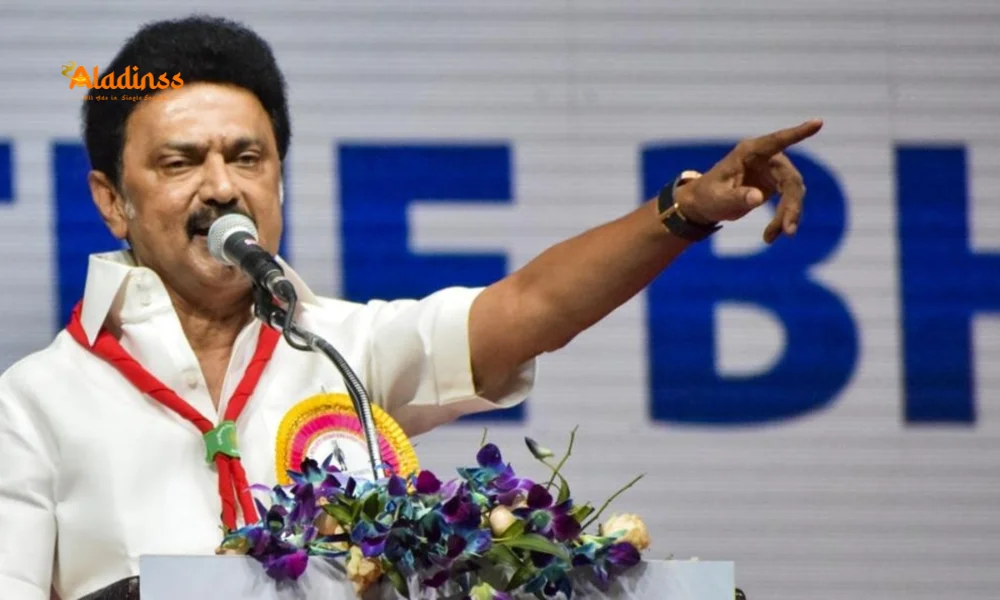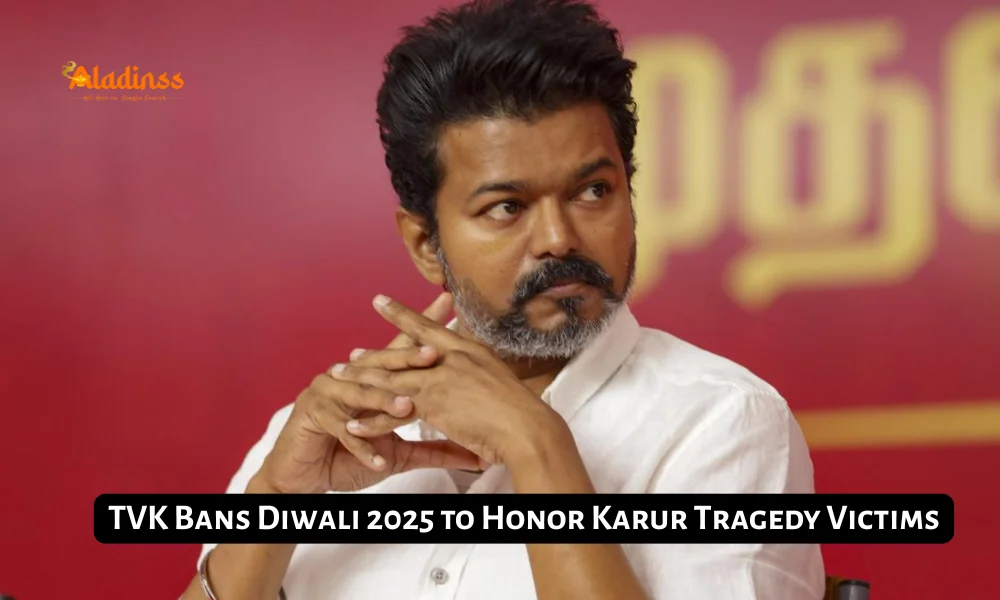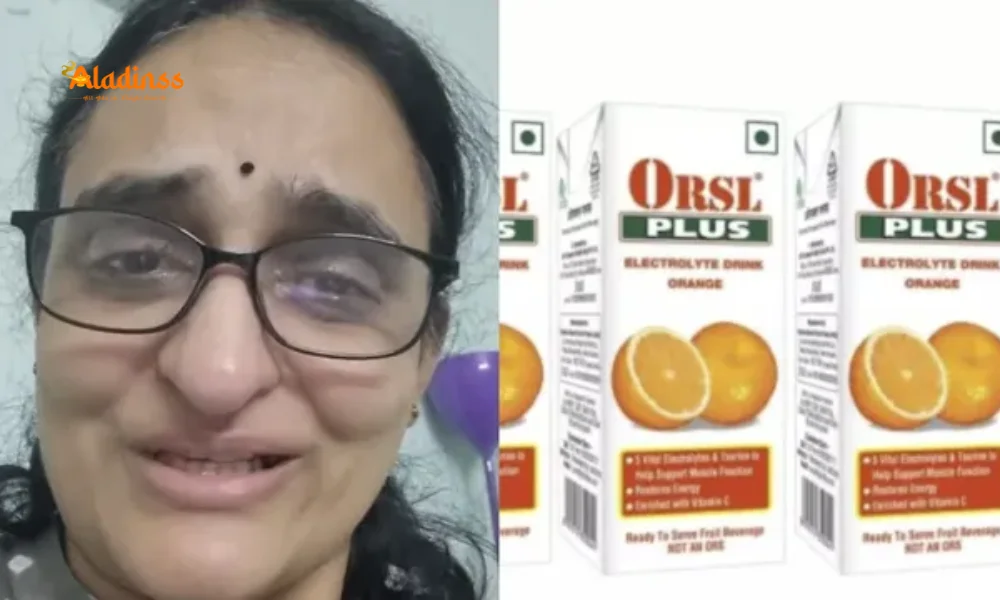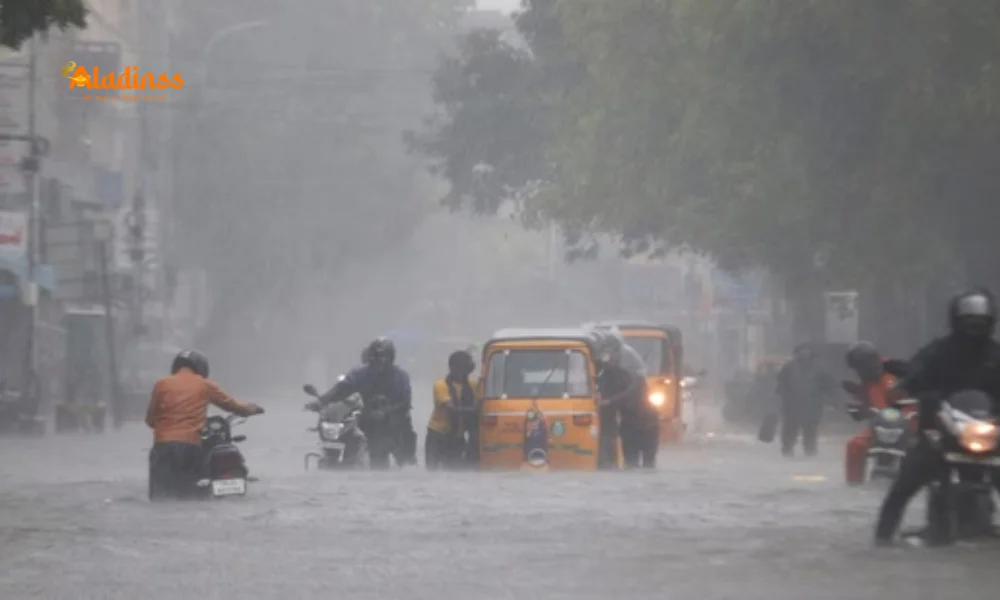Rahul Gandhi’s Voter Rights Yatra in Bihar Sees Tamil Nadu CM M.K. Stalin’s Participation Today
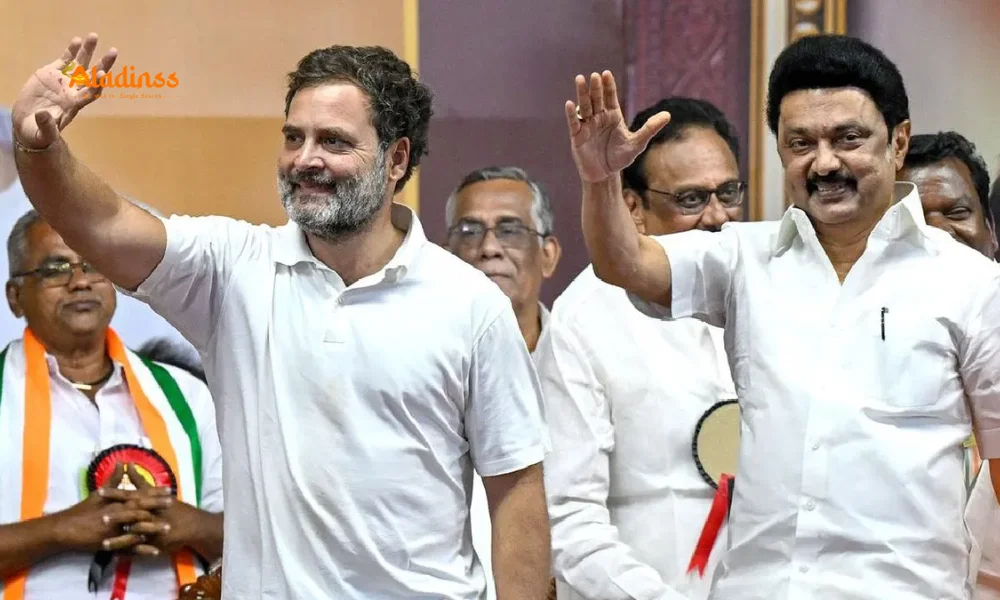
Rahul Gandhi’s Voter Rights Yatra in Bihar Sees Tamil Nadu CM M.K. Stalin’s Participation Today
In a powerful display of opposition unity, Tamil Nadu Chief Minister M.K. Stalin is participating in Congress leader Rahul Gandhi’s Voter Adhikar Yatra in Bihar today, August 27, 2025. The yatra, launched to address allegations of voter list irregularities and protest against the Special Intensive Revision (SIR) of electoral rolls in Bihar, has emerged as a significant people’s movement. With Rahul Gandhi and Rashtriya Janata Dal (RJD) leader Tejashwi Yadav leading the charge, the campaign has garnered widespread support across the state. Stalin’s presence, alongside DMK MP Kanimozhi, highlights the INDIA bloc’s collective effort to challenge what they describe as voter suppression tactics ahead of the upcoming Bihar Assembly elections.
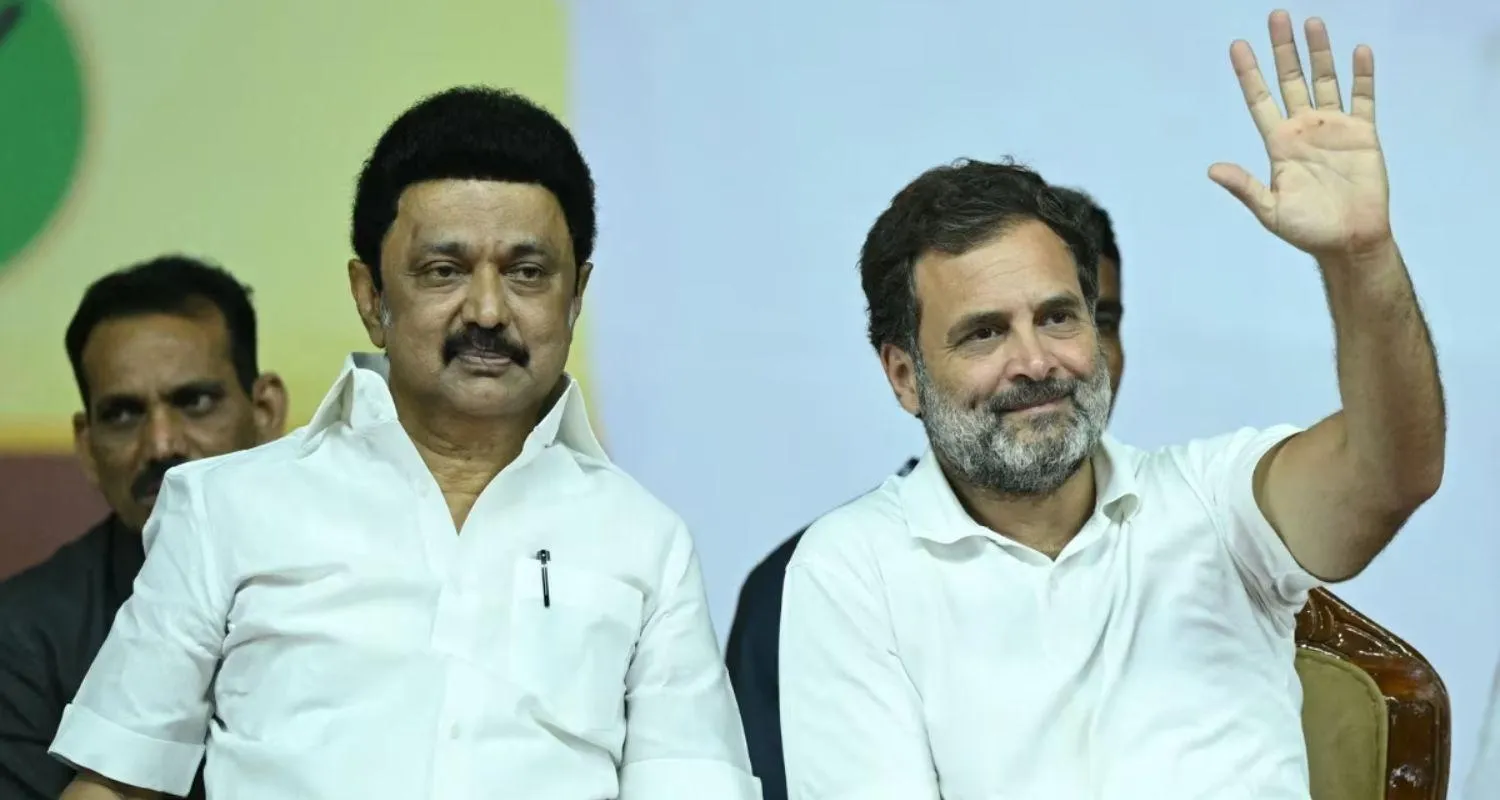
Origins and Objectives of the Voter Adhikar Yatra
Rahul Gandhi, the Lok Sabha Opposition Leader, launched the Voter Adhikar Yatra on August 17, 2025, in response to concerns over the Special Intensive Revision (SIR) process, which has reportedly led to the deletion of millions of legitimate voters from Bihar’s electoral rolls. The 16-day campaign, spanning over 1,300 kilometers across more than 20 districts, aims to raise awareness about voter rights and pressure the Election Commission of India (ECI) to ensure transparency in the electoral process. Gandhi has accused the ruling Bharatiya Janata Party (BJP) and its allies of manipulating voter lists to influence election outcomes, a charge that has resonated with citizens and opposition leaders alike.
The yatra has been designed as a grassroots movement, with Rahul Gandhi and Tejashwi Yadav engaging directly with farmers, students, women, and workers. Public meetings, rallies, and symbolic events, such as a motorcycle rally in Purnea, have drawn significant crowds, amplifying the campaign’s message. The opposition claims that the SIR process, which involved verifying 78.9 million voters between June and July 2025, has disproportionately affected marginalized communities, including minorities, by removing their names from voter lists without adequate justification.
M.K. Stalin’s Role in Today’s Rally
Tamil Nadu Chief Minister M.K. Stalin, a key figure in the Dravida Munnetra Kazhagam (DMK) and a prominent member of the INDIA bloc, arrived in Darbhanga this morning to join Rahul Gandhi’s Voter Adhikar Yatra. At 10:30 AM, Stalin participated in a march along National Highway 57, walking alongside Gandhi and addressing a public meeting to highlight the importance of protecting voter rights. His participation underscores the DMK’s commitment to supporting the opposition’s fight against alleged electoral malpractices, not only in Bihar but across India as the country gears up for crucial state and national elections.
DMK MP Kanimozhi, known for her advocacy on social justice issues, is also participating in the rally, adding further weight to the campaign. Stalin’s involvement is expected to draw significant attention, given his stature as a seasoned political leader and his party’s strong influence in Tamil Nadu. After the public meeting, Stalin is scheduled to return to Chennai by evening, concluding his brief but impactful visit to Bihar.
Broader Opposition Support
The Voter Adhikar Yatra has become a rallying point for the INDIA bloc, with multiple opposition leaders joining the campaign to express solidarity. Congress General Secretary Priyanka Gandhi Vadra participated in rallies in Supaul and Darbhanga on August 26 and 27, respectively, emphasizing the need to protect democratic principles. Karnataka Deputy Chief Minister DK Shivakumar has also lent his support, describing the yatra as a transformative movement for Bihar’s political landscape. Additionally, sources indicate that Karnataka Chief Minister Siddaramaiah will join the campaign on August 29, further strengthening the opposition’s collective stance.
The participation of leaders from states like Tamil Nadu and Karnataka highlights the yatra’s national significance. By bringing together regional heavyweights, the campaign aims to project a unified opposition narrative against the BJP-led National Democratic Alliance (NDA), which holds a majority in Bihar’s 243-member Assembly with 131 seats. The opposition, comprising the RJD, Congress, and left parties, is leveraging the yatra to build momentum and mobilize voters ahead of the state elections expected later in 2025.
Controversy Surrounding Voter List Revisions
The core issue driving the Voter Adhikar Yatra is the Special Intensive Revision (SIR) of voter lists, which the opposition claims has led to the deletion of approximately 6.5 million legitimate voters. According to Rahul Gandhi, the process has removed names of eligible voters, particularly from minority and marginalized communities, while retaining deceased or duplicate entries in some cases. Specific allegations include the inclusion of a 124-year-old voter and the deletion of 3.6 million names under the pretext of migration, alongside 2.2 million deceased and 700,000 duplicates.
The ECI has defended the SIR, stating that it is a routine exercise to ensure electoral integrity by updating voter lists. Chief Election Commissioner Gyanesh Kumar has dismissed the opposition’s allegations, arguing that political parties have long demanded corrections to voter rolls. However, critics point out that the SIR’s stringent documentation requirements, such as birth certificates and passports, have created barriers for vulnerable populations in Bihar, a state with one of India’s lowest literacy rates. The issue has escalated to the Supreme Court, where petitioners are seeking greater transparency regarding the deleted names.
Political Significance of the Yatra
The Voter Adhikar Yatra is a strategically timed campaign, coming at a time when Bihar’s political landscape is heating up ahead of the Assembly elections. The state has a history of electoral volatility, and the opposition is keen to capitalize on public discontent over issues like unemployment, inflation, and now voter suppression. By framing the yatra as a defense of constitutional rights, Rahul Gandhi and his allies are appealing to a broad base of voters, particularly the youth and rural communities who have turned out in large numbers for the rallies.
The campaign’s success is evident in its ability to sustain momentum over multiple districts, with events in Sasaram, Purnea, Supaul, and Darbhanga drawing thousands of supporters. Social media has played a crucial role, with live streams, hashtags, and viral videos amplifying the yatra’s message beyond Bihar. The opposition hopes that the campaign will not only pressure the ECI to address voter list concerns but also galvanize voters to support the INDIA bloc in the upcoming elections.
Impact of Opposition Unity
The participation of leaders like M.K. Stalin and Kanimozhi underscores the INDIA bloc’s strategy to present a united front against the NDA. The DMK, a key player in Tamil Nadu politics, has been a vocal critic of the BJP’s policies, and Stalin’s involvement in the yatra signals a broader alliance aimed at challenging the ruling coalition’s dominance. The presence of leaders from diverse states also serves to nationalize the issue of voter rights, positioning it as a critical concern for India’s democracy as a whole.
The yatra’s grand finale, scheduled for September 1 in Patna, is expected to be a major event, with leaders from across the INDIA bloc converging to deliver a strong message against electoral irregularities. The campaign has already succeeded in drawing attention to the voter list issue, with media coverage and public discourse focusing on the opposition’s allegations. Whether this translates into electoral gains remains to be seen, but the yatra has undoubtedly set the stage for a high-stakes political battle in Bihar.
Looking Ahead: Challenges and Opportunities
As the Voter Adhikar Yatra progresses through districts like Muzaffarpur and Motihari, the opposition faces the challenge of sustaining public interest and converting grassroots support into tangible political outcomes. The campaign’s ability to mobilize voters, particularly in rural areas where electoral awareness is often low, will be critical. Additionally, the opposition must navigate the ECI’s response and the ongoing Supreme Court case, which could influence public perception of the voter list controversy.
For Rahul Gandhi, the yatra represents an opportunity to reinforce his image as a leader committed to democratic values and grassroots mobilization. For M.K. Stalin and the DMK, participation in the campaign strengthens their position within the INDIA bloc and aligns with their broader narrative of social justice and federalism. As the yatra nears its conclusion, its impact on Bihar’s political landscape and the broader national discourse on electoral fairness will be closely watched.
Comment / Reply From
No comments yet. Be the first to comment!
